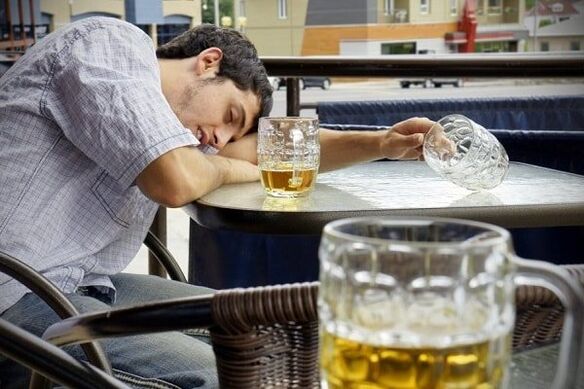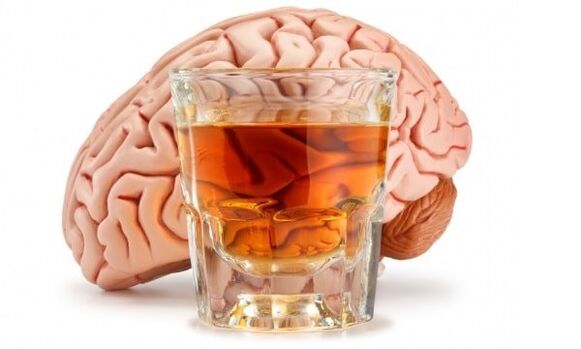There has been more and more talk about alcohol dependence and the treatment of alcoholism. There is a problem. How can we help an alcoholic cope with addiction?
This question is not posed by a family member with a similar problem, most often the wife of an alcoholic who dreams that one day her husband will stop drinking. How can we help an alcoholic stop drinking?
When you want to help a patient with alcoholism, it is most often accompanied by a subjective feeling of the problem. They are irritated by alcoholic beverages, which complicate family relationships and contribute to financial hardship.
An alcohol addict may have only a vague impression that the thing is out of control and often does not see the problem of alcohol abuse at all.
You don’t understand that you need to do something about alcohol addiction, especially if you’re being asked for medication. The alcoholic sincerely denies that he is.
In the eyes of a drunk man, others who want to help him exaggerate the situation. They are like enemies, not helpers and allies. What can be done to help the drunk at home?

How can we help an alcoholic stop drinking?
The paradoxes of helping a drinking person.
The wife of a drinking man thought more about what family life would look like if the husband stopped drinking. In his mourning and rage, he makes arguments in the following style: "If you loved, you have long since finished this alcohol. " Unfortunately, such words only produce results that are fundamentally different from what you intended.
Strengthening the feeling of guilt in the drunken home, the result is that the patient wants to drink. The behavior of alcoholics is not a manifestation of their malice, but a consequence of the disease.
His emotions, thinking, and will began to be driven by alcohol, which is hard to get rid of. Alcohol is a way to suppress sadness, boredom, shame, stress, routine.
The mechanism of addiction is that ethanol turns off negative emotions, in return it gives positive ones at least for a short time - joy, relaxation, peace. When you are sober, you will be overwhelmed by discouragement again, and later another bottle or beer will become "medicine. "
The person addicted to alcohol, under the influence of drinks, makes bad emotions pleasant, which leads to a complete lack of desire to change anything in their life. Therefore, the best help for a drinking person is to confront the alcoholic with reality when he is already sober.
Let him experience the consequences of his drunkenness, such as waking up on the bench without a watch and shoes, paying a drunk driving fine, and taking a reprimand from his boss for not showing up at work after an event with colleagues.

Any negative experience of alcohol poisoning indicates to the drinker that alcohol consumption is not attractive at all and is a serious problem that causes other difficulties - problems with family or the workplace.
Unfortunately, many who want to help a loved one are wondering how they can help an alcoholic cope with addiction and do everything they can to keep the issue of alcoholism silent so that the family is not aware of the problem.
Instead of calling the problem "alcoholism" and letting the drunk experience the negative consequences of alcohol consumption, people do something completely different. with alcohol.
Thus, the drinking household feels "protected" and continues to drink with impunity. Often, people who want to free an alcoholic from handcuffs inadvertently become helpers in drinking and contribute to postponing the decision to stop drinking.
The most common victims of co-dependence are the wives of alcoholics. If the husband is an alcoholic, he is addicted to a chemical - ethanol - and his wife, oddly enough, becomes addicted to her alcoholic husband.
He becomes, so to speak, a partner who does not trust anyone in the world of his spouse, and in his despair he is constantly preoccupied with finding a new job to pay off his partner’s financial obligations. Because of this, he lies to the children that his father is ill, denies alcoholism, neglects himself and the children, ignores his own needs.
This problem also requires some therapy. How can we help an alcoholic cope with addiction? Until the alcoholic’s wife understands that she doesn’t help her, protects her from the negative consequences of alcohol poisoning, the husband drinks.
Co-alcoholism is a series of careless behaviors of an alcohol-dependent partner who tries to adapt to a pathological situation. Unfortunately, this only multiplies subsequent pathologies and problems.

The family then deals with not one but two addictions: alcoholism and co-alcoholism. The wife makes every effort in good faith - she hopes this will make it easier for the husband to recover from the addiction. Unfortunately, his efforts have the opposite effect - involuntarily provoking the disease even more.
He pays a lot of attention, cares, promises, lies, defends - nothing. How can we help an alcoholic cope with addiction? To help an alcoholic stop drinking once and for all, you need to stop pretending, admit that you are helpless, and seek professional help.
Helping an alcoholic is an ungrateful role because the alcohol addict fights fiercely for his drinks. Once you have decided to help an alcoholic, it is worth remembering that it is a job that lasts for many years and not a day.
The person who drinks will not change under the influence of any, even the most violent. Some, on the contrary, argue that it is impossible in itself to help an alcoholic because it can only harm himself. Encourage people to seek help from specialized centers such as addiction treatment centers and others.
Tips for alcohol addicts
How can you help prevent and promote alcoholism?

Here are some tips and tricks to keep in mind when deciding to support and heal a drinking person:
- Accept that alcoholism is a chronic disease. Don’t see this as a shame and shame for the family, or something to be hidden from the whole world.
- An alcoholic is like a naughty child who needs to be punished for lack of discipline and disobedience!
- Don’t believe the drunken home promises when you realize they can be fulfilled! An alcoholic may state that he or she wants "cosmetic changes, " such as guaranteeing that he or she will change the type of drink to a weaker one. Don’t expect drastic changes due to a single quarrel or blackmail.
- Be consistent! If you said you would do something, please do it. Don’t worry about leaving when you’re not ready.
- No need to blame, don’t drag yourself into conflicts, don’t read a sermon, especially when an alcoholic is drunk. You already know everything you want to inspire. This behavior only provokes further lies and unfounded promises.
- Don't wait for an immediate and quick way out of the problem! Alcoholism is a chronic disease, and even long-term abstinence does not guarantee that the disease will not return. Brew monastery tea daily, effectively removing alcohol and nicotine addiction.
- Don’t check how much an alcoholic is drinking, don’t put away bottles you buy, but don’t allow open access to alcohol - it will only make the alcoholic go into even more desperate attempts to get alcohol and look for a drinking opportunity.
- Never drink together in the hope that you will get less and drink less. How can you help an alcoholic stop drinking if you sit and drink together? Not at all.
- Don’t let the drunk lie, don’t believe in his lies and promises, because that will allow him to hope to be able to play out his loved ones.
- Try to give support and love to the alcoholic. Appreciate your attempts at sobriety. Remember, alcoholism is a disease and no one should be blamed for the disease.
The most effective way to help an alcoholic is to leave him alone — don’t insist on rehabilitation, don’t shout, don’t cry, don’t beg, get ready for sick days, don’t borrow, don’t clean up after a drunk. parties, let me try to tidy up the hangover. . .
Let him drink at his own expense and risk. The sooner you reach a low point, the more likely you are to want to give up quickly to get better.































